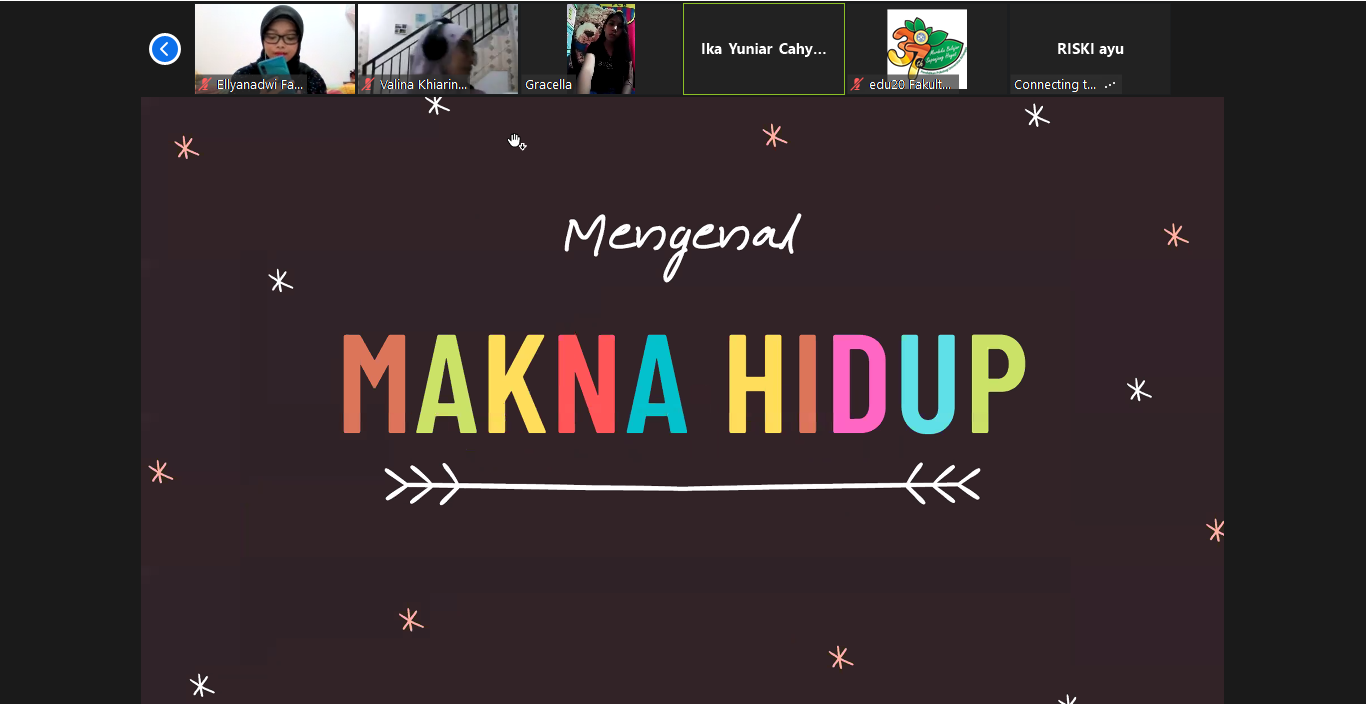UNAIR NEWS – Faculty of Psychology Universitas Airlangga (UNAIR) held a community service activity through a collaboration with the SMP Yayasan Institut Indonesia (YII) Surabaya. The community service activity was held on Thursday, October 29, 2020 using Zoom and was attended by the SMP YII students.
Ellyanadwi Farisandy or Elly, the speaker at this community service invited the students of SMP YII Surabaya to get to know the meaning of life. Elly explained that the meaning of life is things that make individuals continue to live their lives every day.
“Some say the meaning of life is the purpose of life, hope of life, or even life motivation,” she said.
Elly added, the meaning of life is not only based on the aspirations of the individual. The meaning of life can also be based on other things such as family, friends, education, or work. “Everyone has a different meaning in life, and that’s okay,” she continued.
Apart from introducing the meaning of life to the participants, Elly also invited the participants to identify themselves, recognizing their own strengths and weaknesses. During the presentation, participants had the opportunity to share the meaning of their life and their strengths and weaknesses.
Syiar, one of the participants in the activity explained that the meaning of life to him is being a pilot, because then he can fly people and go to the holy land. Another participant, Indah, also expressed her desire to become a doctor because of her love for natural science subjects.
Ika Yuniar Cahyanti, M.Psi., Psychologist from the executive committee of the activity said that the community service activity will be held nine times, eight meetings with students and one meeting with the teacher.
“This community service activity has been carried out since July 2020, starting from the preparation stage to funding and implementation,” explained the lecturer known well as Ika.
Ika hoped that this community service activity can contribute to knowledge, especially in the field of clinical psychology, regarding treatment references to improve adolescent self-concept, by using logotherapy interventions.
Furthermore, Ika explained that logotherapy is the use of psychotherapy to heal, reduce, or alleviate existential crises through finding meaning in life. Logotherapy training is planned, carried out in the form of counseling, presentation, and discussion oriented towards how individuals know themselves and interpret life.
“I hope that with the better understanding on self-concept of adolescents through logotherapy, they can interpret their behavior as well as lead them into positive activities,” concluded Ika. (*)
Author: Galuh Mega Kurnia Editor : Binti Q. Masruroh





